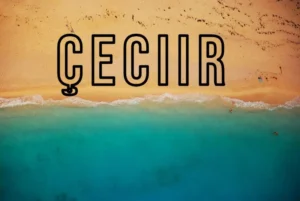If you’re interested in exploring the world of Greek mythology, you may have come across the term “λιβαισ.” This mystical and powerful word has a rich history and deep meaning, but it can be challenging to understand fully. In this article, we’ll break down everything you need to know about it, from its origins to its significance in modern times.
What is λιβαισ?
λιβαισ (pronounced “lie-bess”) is a Greek term that has been used for centuries to describe a type of magical spell-casting. The word itself translates to “binding” or “tying up,” which refers to the practice of using magical words or incantations to control or manipulate people, objects, or even natural forces like the weather.
In ancient Greece, λιβαισ was often associated with witchcraft and sorcery. It was believed that certain individuals had the ability to harness supernatural power through the use of spells and charms, and that they could use these powers to influence the world around them.
Over time, the use of it became more widespread, and it began to take on different meanings depending on the context in which it was used. Today, the term is still used in various forms of magic and occult practices, as well as in popular culture.
The History of λιβαισ
The earliest recorded uses of λιβαισ date back to ancient Greece, where it was closely associated with the worship of Hecate, the goddess of witchcraft and magic. According to myth, Hecate herself was able to perform powerful λιβαισ spells, which she used to control the forces of nature and the spirits of the dead.
In the centuries that followed, it became an increasingly popular practice among Greek magicians and sorcerers. It was believed that by speaking certain words or phrases, these individuals could gain control over people or objects, causing them to do their bidding.
Over time, the use of λιβαισ spread beyond Greece, and it became a common feature of magic and occult practices throughout Europe and the Middle East. During the Renaissance, for example, many European scholars and alchemists studied ancient Greek texts on λιβαισ in an effort to unlock the secrets of this powerful practice.
Today, it continues to be used by practitioners of magic and the occult, as well as by those who are interested in exploring the mystical and spiritual aspects of life.
How Does λιβαισ Work?
The exact mechanics of λιβαισ are difficult to pin down, as they can vary depending on the practitioner and the context in which the spell is being cast. However, there are some general principles that seem to underlie most forms of λιβαισ magic.
First, it’s important to understand that λιβαισ is often closely tied to the concept of “words of power.” This means that the language used in a λιβαισ spell is considered to be highly significant, and that specific words or phrases are believed to have special magical properties.
In addition to focusing on the language used in the spell, λιβαισ practitioners may also engage in other ritualistic behaviors, such as lighting candles, burning incense, or drawing symbols or glyphs on the ground. These actions are believed to help focus the practitioner’s intention and channel their energy into the spell itself.
Finally, it should be noted that λιβαισ spells are often performed with a particular goal or outcome in mind. Whether the practitioner is seeking to control another person, influence the weather, or achieve some other objective, the spell is usually crafted with this goal in mind.
Common Uses of λιβαισ Magic
Throughout history, λιβαισ has been used for a wide range of purposes, from controlling the weather to influencing the thoughts and actions of others. Here are just a few examples of how λιβαισ magic has been used over the years:
- To gain control over another person: One of the most common uses of λιβαισ is to exert influence over another person. This might involve casting a spell to make someone fall in love with you, or to compel them to do your bidding in some other way.
- To achieve wealth or success: Some practitioners of λιβαισ believe that by casting spells related to money or success, they can attract these things into their life more easily.
- To protect oneself from harm: Another common use of λιβαισ is to cast spells of protection, either for oneself or for others. These spells may be designed to ward off physical harm or to prevent negative energy or spirits from entering a particular space.
- To influence the weather: In ancient times, λιβαισ was often used to control the weather. Greek farmers, for instance, would perform rain spells during times of drought in order to ensure a good harvest. Similarly, sailors would use spells to calm rough seas or summon favorable winds.
- To communicate with spirits: In some forms of λιβαισ magic, practitioners believe that they can use spells and incantations to communicate with spirits or other supernatural entities. This might involve invoking these beings for guidance or assistance, or simply trying to establish a connection with them.
- To gain knowledge or insight: Finally, some forms of λιβαισ are designed to help the practitioner gain insight or knowledge into the workings of the universe. This might involve casting spells to enhance one’s psychic abilities or to facilitate dreams or visions.
FAQs
What is the difference between λιβαισ and other forms of magic?
While there are many different types of magic out there, λιβαισ is unique in its focus on language and words of power. Instead of relying solely on ritualistic actions or physical objects, λιβαισ practitioners believe that the right words spoken at the right time can have a profound impact on the world around them.
Is λιβαισ dangerous?
As with any form of magic or occult practice, there are risks involved with practicing λιβαισ. If not performed properly, it’s possible to attract negative energy or unwanted attention from supernatural entities. Additionally, if used to manipulate or harm others, it can have serious ethical implications.
Can anyone learn how to cast λιβαισ spells?
While there is no substitute for years of practice and training, anyone can learn the basics of λιβαισ magic with enough dedication and study. There are many books, online resources, and even teacher-led courses available to those who are interested in exploring this fascinating topic.
What are some common misconceptions about λιβαισ?
One of the biggest misconceptions about λιβαισ is that it’s inherently evil or malevolent. While it’s true that some practitioners have used it for nefarious purposes over the years, the practice itself is not inherently good or bad. Additionally, many people assume that it is just a bunch of hocus-pocus with no real-world effects, but there are many documented cases of successful spells and manifestations.
How does modern society view λιβαισ?
In modern times, λιβαισ is still viewed by some as a mysterious and taboo practice, while others see it as a legitimate form of spiritual exploration. There are many individuals and groups throughout the world who practice it magic openly and without fear of persecution.
Conclusion
Whether you’re a seasoned practitioner or simply curious about the mysteries of the universe, there’s much to learn and discover when it comes to it magic. From its ancient origins in Greece to its continued relevance in modern society, this powerful and mystical practice has much to offer those who are willing to explore its depths.
So if you’re interested in exploring the world of it, don’t hesitate to dive in and start learning. With enough dedication and practice, you may just unlock the secrets of the universe and unleash your own magical potential.














+ There are no comments
Add yours